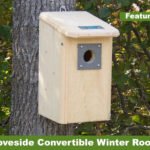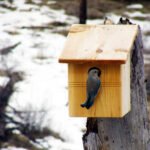 According to one community in Nevada, birds aren’t just a terrible nuisance, they’re also a health risk to humans.
According to one community in Nevada, birds aren’t just a terrible nuisance, they’re also a health risk to humans.
The Wingsfield Springs Community Association, a place in which birds have always been important to its identity, has put a ban on feeding birds and allowing them to nest in yards because they say it will increase the chances of getting illnesses.
I say that theory is for the birds!
I am not alone either. An excellent article by Mark Robinson at RGJ.com fact-checked these dubious claims and found they are totally false.
According to the article, the association detailed the potential threats:
“Birds are known to harbor Histoplasma capsulatum and Cryptococcus neoformans; two fungi which can infect humans. They also may harbor a bacterium (Chlamydophila psittaci) which can cause an infection called ornithosis. Birds are also known to carry the West Nile and St. Louis Encephalitis viruses. Ticks and mites, which carry diseases in their own right are also carried by birds and may transmit diseases to humans.”
The association also said wild birds spread salmonella. In general, it is completely inaccurate to say a bird feeder is bad for anything, let alone a human being. Occasionally, if there’s an unkempt bird feeder with seeds everywhere and unwashed droppings, there could be health risks to other birds. However, a common bird feeder will never pose a major risk to humans.
In the article, Robinson points out that although birds can carry West Nile and St. Louis Encephalitis viruses, they can’t transmit them to humans. The only way humans can get the viruses is through mosquito bites. Chlamydophila psittaci, a bacteria that leads to a life-threatening pneumonia, is rare and usually only involves domesticated birds. There are no tick-born or mite-born illnesses in humans and salmonella is more common in pet birds and reptiles than wild birds.
By the end of the article, you see that all the claims from the homeowner’s association bear no truth. In fact, the association is encouraging residents to take down nests near their houses, which is against the law.
All in all, hanging a bird feeder in your yard does not increase the likelihood of someone getting a disease and as long as you keep the area surrounding your feeder tidy, there’s little risk of other birds getting sick.
Hopefully, the association will realize the folly of its ways and no other communities fall for the misinformation about the dangers of bird feeders.




17 Comments
I commend the Homeowner’s Association. I acquired histoplasmosis due to all the birds a neighbor’s bird feeders attraxted. Hence, this article is inaccurate.
Yes. Cleaning the feeders is mandatory. Use gloves. Also, wash bottom of shoes with same solution upon entering you home. This way you don’t track in any droppings!